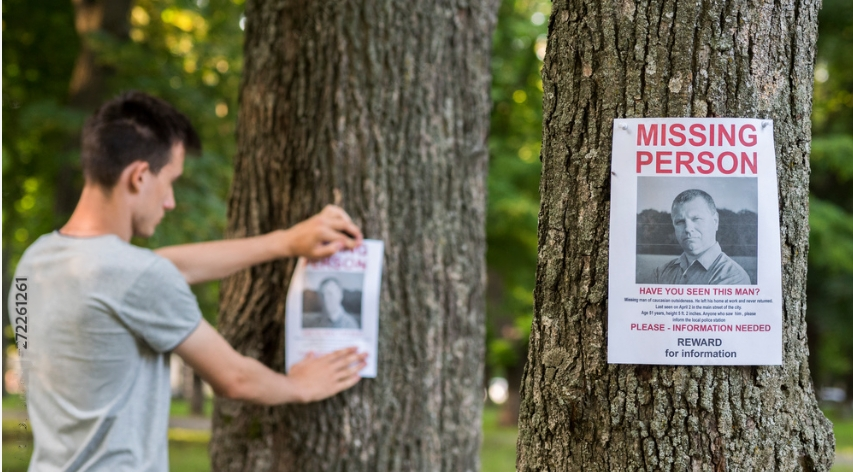
Missing Person Finding Service: Navigating the Process of Locating Loved Ones
A missing person case is a distressing situation that requires urgent and sensitive handling. Whether it's a loved one who has disappeared, a family member who has lost contact, or a debtor evading obligations, locating a missing person can be complex and emotionally challenging. Understanding the steps and resources available for finding a missing person can aid in the search and increase the chances of a successful outcome.
Key Aspects of Missing Person Finding Services
Immediate Action and Reporting
Acting quickly is crucial when a person goes missing. Key steps include:- Contacting Authorities: Report the missing person to the local police as soon as possible. Provide all relevant information, including a recent photograph, physical description, and any known circumstances of their disappearance.
- Filing a Missing Persons Report: Ensure the report is filed and a case number is assigned, which can be used for future reference and follow-ups.
- Gathering Information: Collect details such as the person’s last known location, activities, communication records, and any potential reasons for their disappearance.
Using Social Media and Public Appeals
Social media can be a powerful tool in locating missing persons. This involves:- Creating a Social Media Campaign: Share information about the missing person on platforms like Facebook, Twitter, and Instagram. Use relevant hashtags and ask others to share the posts to increase visibility.
- Public Appeals: Consider reaching out to local news outlets for coverage. Public appeals can raise awareness and prompt people to come forward with information.
- Maintaining Privacy and Sensitivity: Be mindful of the missing person’s privacy and avoid sharing sensitive personal information that could put them at risk.
Engaging Professional Services
Professional missing person finding services can provide specialized assistance. This includes:- Private Investigators: Hiring a licensed private investigator experienced in missing person cases can be beneficial. They have access to resources, databases, and investigative techniques that may not be available to the public.
- Specialized Organizations: Certain charities and organizations specialize in finding missing persons and offer support and resources to families in need.
- Legal Assistance: In cases involving legal complexities, such as custody disputes or abductions, consulting with a legal professional can provide guidance on the appropriate steps to take.
Utilizing Technology and Databases
Various technologies and databases can aid in the search for a missing person, including:- GPS and Phone Tracking: If the missing person had a mobile device, authorities and professionals might use GPS tracking or request call records to trace their movements.
- Missing Persons Databases: Utilize national and international databases like the UK Missing Persons Bureau, Interpol, or the National Crime Agency to circulate information about the missing person.
- Facial Recognition Software: Some organizations use facial recognition technology to compare images of the missing person with photographs in public databases or social media.
Long-Term Missing Persons
For cases that remain unresolved over time, additional steps may include:- Ongoing Investigations: Regularly follow up with law enforcement and any hired investigators. Provide updates on any new leads or information.
- Renewing Public Appeals: Periodically renew public appeals and social media campaigns to keep the case active in public consciousness.
- Counseling and Support: Seeking emotional support through counseling or support groups can be crucial for family members dealing with the uncertainty and emotional toll of a long-term missing person case.
Legal Considerations in Missing Person Cases
Several legal considerations may arise when dealing with a missing person case, such as:
- Welfare Checks: If you believe the missing person is in immediate danger, you can request a welfare check by law enforcement.
- Accessing Personal Records: In some cases, you may need legal permission to access the missing person’s financial or medical records to aid in the search.
- Presumption of Death: If a person has been missing for an extended period (usually seven years or more), family members may apply for a presumption of death certificate, which has legal implications for the estate and next of kin.
Conclusion
Finding a missing person is a challenging process that requires swift action, use of available resources, and professional assistance. By understanding the steps involved and utilizing the tools and services available, the chances of locating a missing person can be significantly improved. If you are dealing with a missing person case, consider seeking help from professionals and support networks to navigate this difficult time.
Or
Schedule a Consultation
Schedule a Time
Choose a convenient time from our available slots. Easy online booking, no hassle. Get the legal help you need.
Meet a Consultant
Ready to take the next step? consultation with our experts. Get personalized guidance and solutions.
Plan with Success
Chart your path to success. Expert guidance, tailored strategies. Achieve your goals. Let's plan together.




